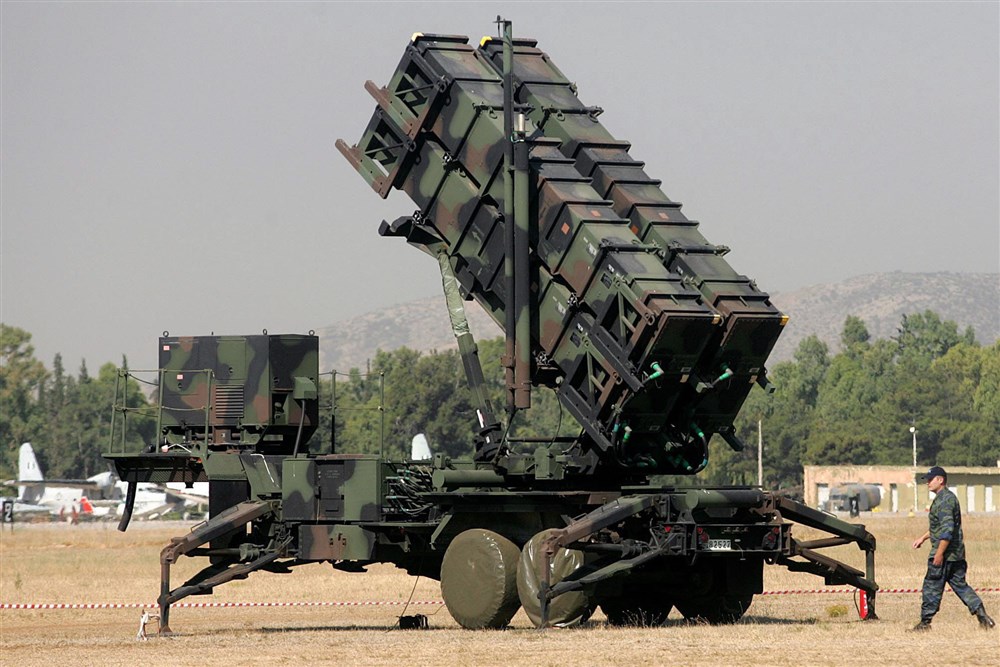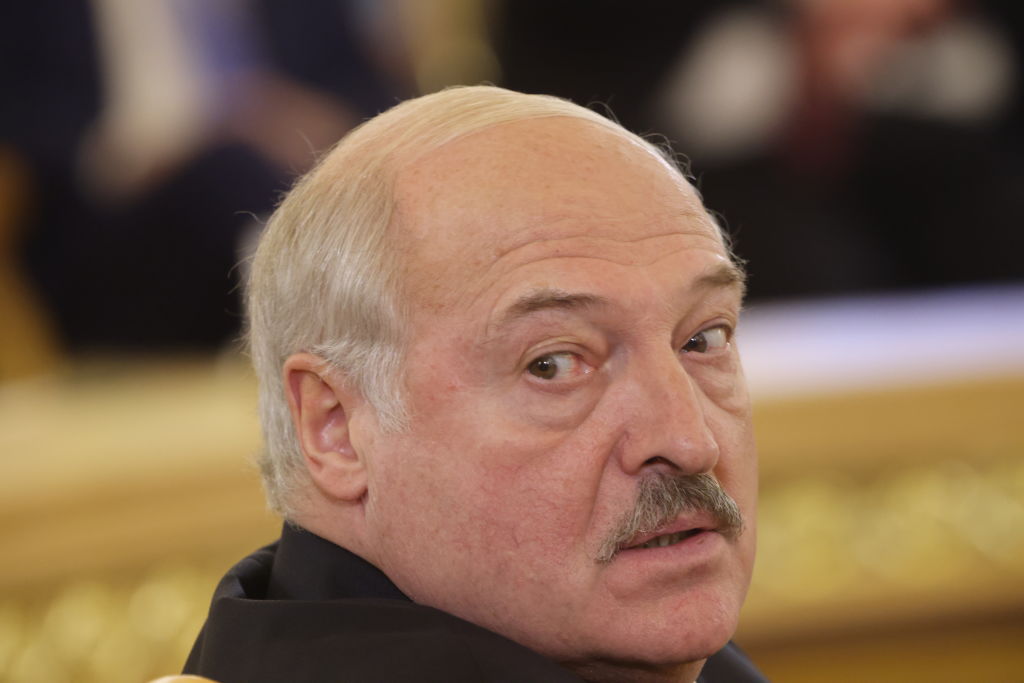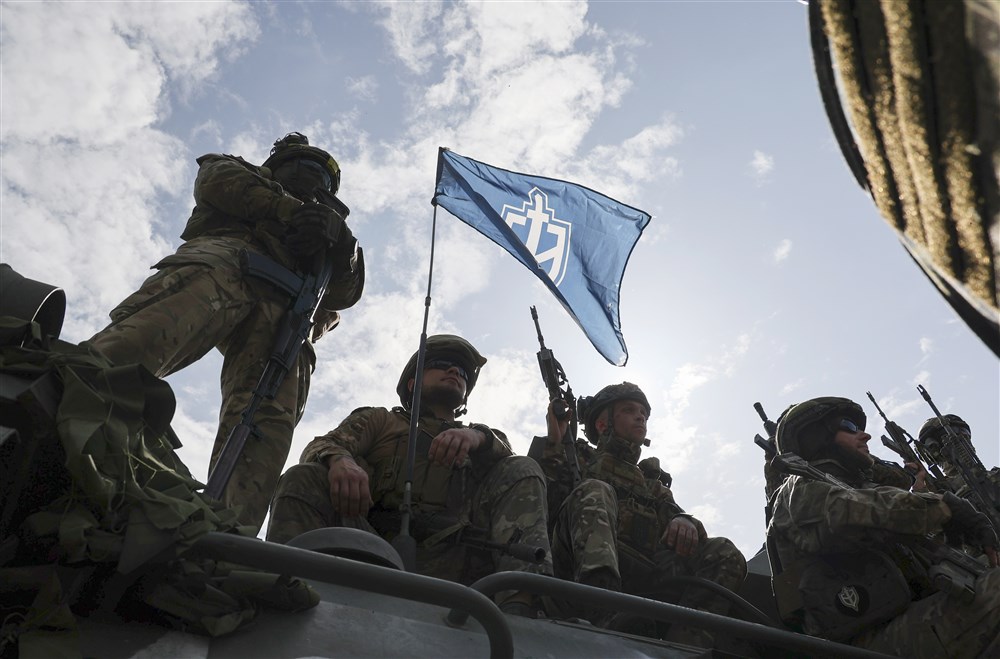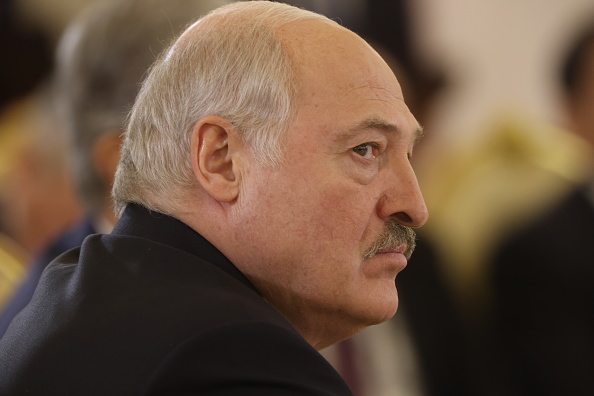Moscow has ordered the closure of a Polish consulate in Smolensk, the western Russian city closest to the site of both the Katyń massacre of thousands of Polish officers during the Second World War and the 2010 air crash in which the then-Polish President Lech Kaczyński and 95 others died.
The move has ratcheted up the tension between the two countries, just as the Wagner Group of Russian-backed mercenaries is reported to have arrived in Belarus.
Poland’s Ministry of Foreign Affairs described Russia’s closure of the Smolensk consulate as a “hostile and reprehensible act” and that Poland “reserves the right to take appropriate steps in response”. The ministry has not specified what these might be.
It also accused Russia of attempting to “distort history”.
“The sites of the slaughter of nearly 22,000 Polish citizens by the NKVD in 1940 and the plane crash in 2010, [at] Katyn and Smolensk, bear a special, symbolic meaning for all Poles,” the ministry said. “The decision taken [to close the consulate] by the Russian authorities is proof of increasingly bold attempts to distort history and negate responsibility for crimes perpetrated by the Russian state.”
The Smolensk facility had been overseeing memorials at the site of the air crash and the Polish War Cemetery in Katyn and providing visits to them.
Russian officials have justified the action by stating that the move was in retaliation to “unfriendly actions by Poland” and that in shutting the consulate it was “restoring parity in the number of diplomatic and consular missions run by Poland and Russia”.
One of the “unfriendly actions” in question, according to Moscow, was the seizure of a school building for the children of Russian diplomats in Warsaw. Poland claims that was based on a court order issued for longstanding “illegal occupation” of that facility by the Russian Embassy.
The Kremlin is also angry about Poland’s decision to remove public monuments to Red Army soldiers who died during Second World War. However, the graves of fallen Russian soldiers continue to be maintained.
But it is Warsaw’s intensive military, humanitarian and diplomatic assistance it is giving Ukraine that observers say is at the heart of Moscow’s fury. Russian politicians and media regularly cite Poland as the “most aggressive” NATO state and have repeatedly threatened that Russia’s patience is wearing thin.
The latest sign of that intense irritation came in remarks made by Russian General Andrey Kartapolov. In a TV show hosted by Kremlin propagandist Vladimir Solovyov, the general threatened that Russia was willing to use the Wagner mercenaries to engineer an attack on the “Suwalki gap” in Poland.
The Suwalki gap is a small part of Polish territory that constitutes the only land-link between the Baltic states and the rest of the European Union.
It also separates Belarus from the Russian enclave of Kaliningrad, which is regarded by military analysts as NATO’s “achilles heel” on its eastern flank.
The Polish and Ukrainian security services on the weekend of July 15 reported that Wagner forces had arrived in Belarus and were already providing training for the Belarusian military.
Poland fears that the mercenaries in Belarus could be used in the same way they have been mobilised in fighting in Africa and may also assist illegal migrants in crossing its border into Poland.
In response to potential moves by the Wagner Group, the Polish Government recently deployed 500 police officers to the Belarusian border to support the 5,000 border guards and 2,000 soldiers already present.





